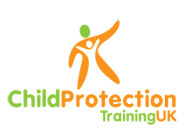Booking options
£300
+ VAT
£300
+ VATDelivered In-Person
Designated Safeguarding Lead (DSL) Training
One-Day Course 10am - 4pm
Updated Jan 2024 (Working Together to Safeguard Children & Keeping Children Safe in Education
This Course can also be run within your organisation for your staff group at a reduced rate, contact us for a quote or if you have any other questions about this course talk to an adviser now online: Online Live Customer Adviser
What is the course about?
This course will help you and your staff become familiar with the role and responsibilities of the designated safeguarding lead in your organisation. It will develop both your competence and confidence in carrying out the role of Designated Safeguarding Lead (DSL). Formally known as Level 3
Course Description
This course provides advanced knowledge of child protection procedures and will help you to recognise and know what to do if you believe that a child is at risk. The course aims to provide advanced information on reporting strategies, policies and procedures. It also covers: how to make your working environment safe for children, including safe practices; what to do if you believe that a child is at risk; who to approach or report to; what actions to take and which legislation applies in this area.
It will look at the role of the Designated Safeguarding Lead, Information Sharing, confidentiality, consent, prevent, radicalisation and what we should expect from children’s social care and enable you to take on the role in your organisation.
Designated Safeguarding Lead (DSL) - Formally known as the Level 3 One Day Course Is in Line with Ofsteds new safeguarding children briefing for section 5 inspectors, Ofsted Inspection Framework & Working Together to Safeguard Children July 2018, Keeping Children Safe in Education
(Sept 2022). You are required to have undertaken the recognised course.
Course Modules:
What’s New / Latest Updates
Role of the Designated Safeguarding Lead
The key legislation and guidance
Information sharing, confidentiality & consent
How to respond to an incident of nudes and semi-nudes being shared
Sexual Harrassment & Sexual Violence
By the end of the course, you will be able to:
describe the role of the designated safeguarding lead (DSL) and state key areas of responsibility.
describe the key legislation and guidance affecting our response to concerns about a child's safety or welfare.
state your own values regarding child abuse and explain the impact of these on professional practice¨
state the barriers inhibiting children from disclosing abuse and respond effectively to a child who does disclose.
state the barriers to staff reporting concerns and develop methods of overcoming theme.
make appropriate decisions about the action to take when informed of a range of concerns about child or young person.
explain the issues & barriers in connection with recording and sharing of information, including that of confidentiality, and state how a referral to children's social care should be made.
demonstrate how to risk assess incidents; safeguarding and supporting children and young people; handling devices and imagery; recording incidents; and providing education on the sharing of nudes and semi-nudes.
state what is likely to happen following a referral to children's social care and the role an organisation plays in the multi-agency child protection process.
demonstrate an awareness of the emotional dimension of safeguarding work and identify ways in which the designated safeguarding lead can support staff.
Target Group
Head Teachers, School Governors, Teachers, Head of Years, Child Protection Officers, Children Homes Manager / Deputies, Head of Cares, nursery and children’s centre managers, FE Managers, Doctors, Nurses, Dental Staff and those with any pastoral care responsibilities.
All our courses are in line with the latest government legislation and guidance including "Working Together to Safeguard Children 2018", Keeping Children Safe in Education (Sept 2022) and are fully compliant with local Safeguarding Partnership requirements. They are compliant with the Early years Foundation Stage (EYFS), Section 11 of the Children Act 2004, section 175 of the Education Act 2002.
This course is in line with CQC, Ofsted, Charity Commission and best practice guidelines, as well as local safeguarding board requirements.
This course meets the outcomes of Level 3/4 according to 'Safeguarding Children and Young People: roles and competences for health care staff' Intercollegiate document.
CPD Accreditation
The content of this course has been independently certified as conforming to universally accepted Continuous Professional Development (CPD) guidelines.
